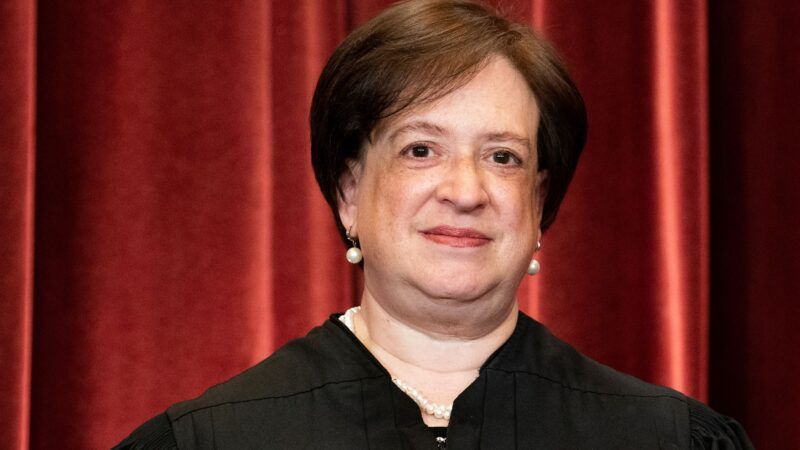Elena Kagan's Valid Critique of the Supreme Court's 'Shadow Docket'
“Without full briefing and argument,” Kagan objects, the Court is quietly resolving major disputes.

In April, the U.S. Supreme Court voted 5–4 to reinstate an Environmental Protection Agency rule promulgated during the Trump administration that had been vacated by a lower court. Why did the Supreme Court reinstate the rule? The majority offered no explanation. Nor did it technically need to do so. The case, Louisiana v. American Rivers, was decided on an emergency basis. Without receiving merits briefing from the parties and without holding oral arguments, the majority simply granted a motion to stay the lower court's decision. And that was that.
Critics have dubbed this sort of emergency action the "shadow docket." It is, in the words of University of Chicago law professor William Baude, "a range of orders and summary decisions that defy [the Court's] normal procedural regularity." Foremost among the shadow docket's foes is Justice Elena Kagan, who dissented in American Rivers, joined by Chief Justice John Roberts and Justices Stephen Breyer and Sonia Sotomayor. "The Court goes astray," Kagan declared. The emergency docket has become "only another place for merits designations—except made without full briefing and argument."
Kagan had a point. As George Washington University law professor Richard J. Pierce Jr. put it, "no one can read the opinion unless the court writes it. That is the problem with the shadow docket." The outcome in American Rivers may have been beautifully reasoned and correctly reached. But we have no way of actually knowing that—let alone of fully judging the outcome for ourselves— because the majority offered zero rationale.
Until recently, complaints about the shadow docket have mostly come from liberal legal experts and activists. The explanation for that is basically political. Put simply, the Supreme Court's recent spate of high-profile emergency interventions have largely aligned with conservative policy preferences. But the politics got a little more complicated in May with the arrival of the Court's shadow docket offering in NetChoice v. Paxton, which reinstated a district court decision blocking the enforcement of Texas' controversial social media law. Without merits briefing and oral arguments, the Supreme Court prevented Texas from enforcing a law that would have compelled social media platforms like Twitter to host speech that they do not want to host. The Texas legislation had been cheered by many conservatives around the country, who were none too happy to see it blocked in court.
"It's kind of frankly ridiculous to me that NetChoice is using the shadow docket," Rachel Bovard of the Conservative Partnership Institute complained to Politico. "It's just egregious to me. It's so arrogant that they would put this in front of SCOTUS right now." As Politico reporter Brendan Bordelon remarked, "progressives outraged over the use of the Supreme Court's emergency 'shadow docket' to resolve legal fights over issues like abortion and immigration got some company this week from an unexpected group—conservative skeptics of the tech industry."
Now that some conservatives are starting to think that living by the shadow docket also means dying by the shadow docket, perhaps they will give Kagan's critique a second look.

Show Comments (51)